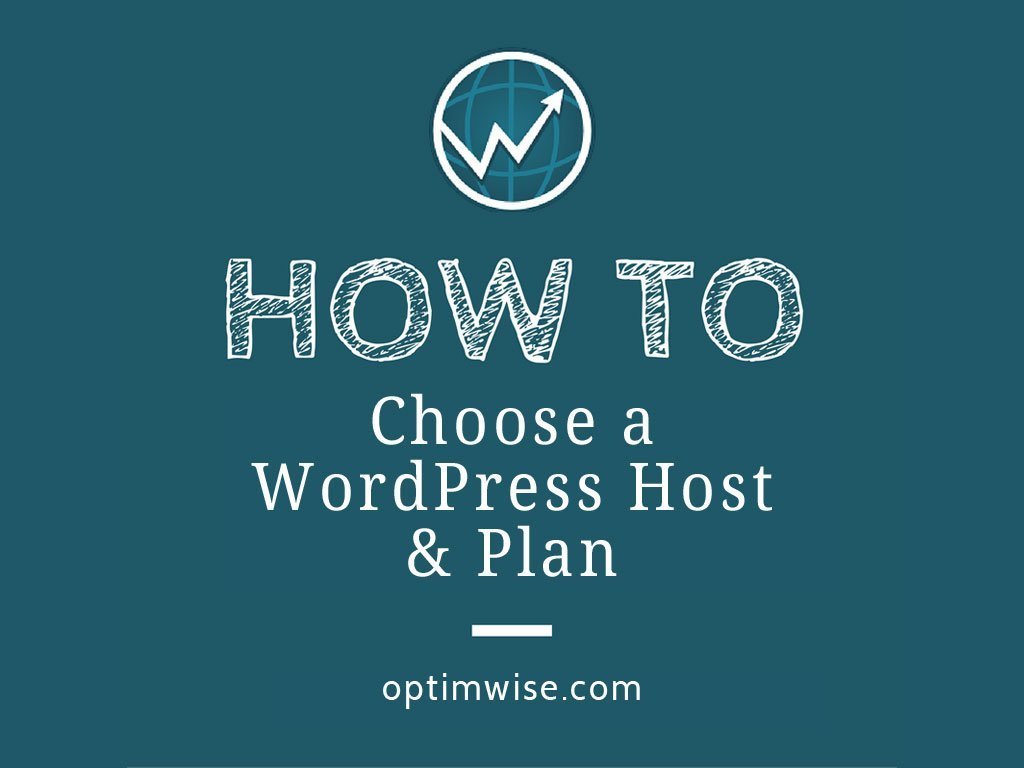
Just as a house needs a strong foundation, a WordPress website needs solid web hosting. Web hosting refers to the computing resources your website runs on. Basically, you're renting a server and networking equipment so that your website has a place to "live" and a way for people to access it. Of course, it's more complex than that, and we'll touch on a few aspects in this post.
Note: This page contains affiliate links. Please see Affiliate Disclosure.
Your hosting plays a large role in the following:
The question you're asking is, "How should I choose a WordPress host and plan?"
Here are the main steps to take:
A company that provides web hosting is called a host. A WordPress host is just a way of saying a web host that can run WordPress websites. Many web hosts can run WordPress sites, and some web hosts host WordPress sites exclusively. Among hosts that can run WordPress, not all hosts run WordPress equally well!
Once you select your host, you select a plan. Just as you can choose from several plans offered by your phone company (such as Verizon) or your Internet service provider (such as Comcast), you can choose from several plans offered by your host.
As with many projects, the first question to ask is, "DIY or DFY?" DIY stands for Do It Yourself, and DFY stands for Done For You. Do you want to manage your hosting, or do you want someone else to handle it? Unless you (or your staff) are familiar with all the aspects of hosting we'll cover in the rest of this post, we recommend leaving hosting to the hosting experts.
Here are the main aspects to consider when determining your hosting needs:
The host should prevent hacking (we'll use the word "hacking" to mean any security issue) as much as possible, but no host is perfect. They should make it quick and easy to recover from an attack, if one happens.
You want your site to be available ("up") 24/7. The host should take care of making that happen. Again, no host is perfect, but the host should be able to detect and rapidly fix any downtime.
Storage refers to how much space your website takes on the server (usually measured in gigabytes, GB). Make sure all the files you need to host will fit, with room to grow (your business will grow, right?). Most hosts make it easy to upgrade, but confirm the upgrade path before signing up.
Bandwidth refers to how much data can be transferred (usually measured in gigabytes per month, GB/mo). Make sure the plan gives all the bandwidth you need, with room to grow. Most hosts make it easy to upgrade, but confirm the upgrade path before signing up.
Think about the level of support you want. Hosts provide support in a variety of ways (phone, live chat, email, ticket system) and on differing schedules (24/7, business hours). Also, some hosts only help with the server hardware and software, while others help with WordPress administration too.
There are several types of hosting, including shared, virtual private server (VPS), cloud, dedicated, and managed. The types that make sense for you will depend on whether you chose DIY of DFY (see above). For example, if you chose DIY, then shared hosting could be a good fit. If you chose DFY, then managed hosting will be a better choice; managed hosting is when the host manages the technical aspects of hosting for you, which is what most business people want! Some hosts offer a variety of hosting types, while others offer just one or two.
Keep in front of you the needs you determined you had, then start comparing hosts.
One of the easiest ways to find a WordPress host is to ask someone who works with WordPress regularly, such as a WordPress agency (oh, hello!).
You can also read reviews. Be careful, because many hosting review sites are biased; they earn commissions for referring hosts. Look for those that accept reviews from actual users. Check the site's policies.
By this point you're screaming at the screen, "Just tell me which host to use!" We've worked with over 20 hosts in the last 10 years. Here are our favorite WordPress hosts:

Flywheel is our favorite WordPress managed host! We use it for client sites whenever we can, and use it for our own site. They focus on making hosting simple; the control panel and tools are easy to use. Their hosting is fast, secure, and reliable.

WP Engine is also a managed WordPress host, with an emphasis on security, speed, and scale. It's great for sites that get a lot of traffic and need rock-solid stability.
SiteGround is an excellent WordPress-optimized shared host. They're faster, more secure, and more reliable than all-purpose shared hosts (like Bluehost, HostGator, HostMonster). They're also less expensive than managed WordPress hosts such as Flywheel and WP Engine (because SiteGround doesn't offer the same level of service).
Warning: SiteGround caused us a few stressful months early in 2016, when they were taking down clients' accounts for 24 hours because they had exceeded resource limits. But, the resource limits weren't being exceeded because of anything our clients were doing, or even from legitimate traffic; malicious bots were slamming the sites and causing high resource usage. SiteGround was always quick to put the sites back up when this happened, but it was extremely frustrating that they didn't prevent it from happening in the first place. We haven't had issues for the last few months, so perhaps they resolved the problem.
If you're a nonprofit, you may consider DreamHost’s free nonprofit hosting, but we’ve found this slower than a WordPress-optimized host. Other hosts offer nonprofit discounts, including Flywheel. Ask your host if they do!
We've not been impressed by GoDaddy or the major EIG companies (Bluehost, HostGator, HostMonster). We've found their hosting slow and too frequently down (including GoDaddy's Managed WordPress hosting).
You can always find our recommended WordPress hosts on our WordPress Resources page.
Once you've picked your top hosts, compare their plans. Look at the aspects we've covered so far in this post (security, uptime, storage, bandwidth, support, etc.). Most hosts make it easy to upgrade your plan, but confirm the upgrade path before signing up.
We'd love to put our experience with many web hosts to work for you. Please contact us to figure out which host is right for WordPress website!